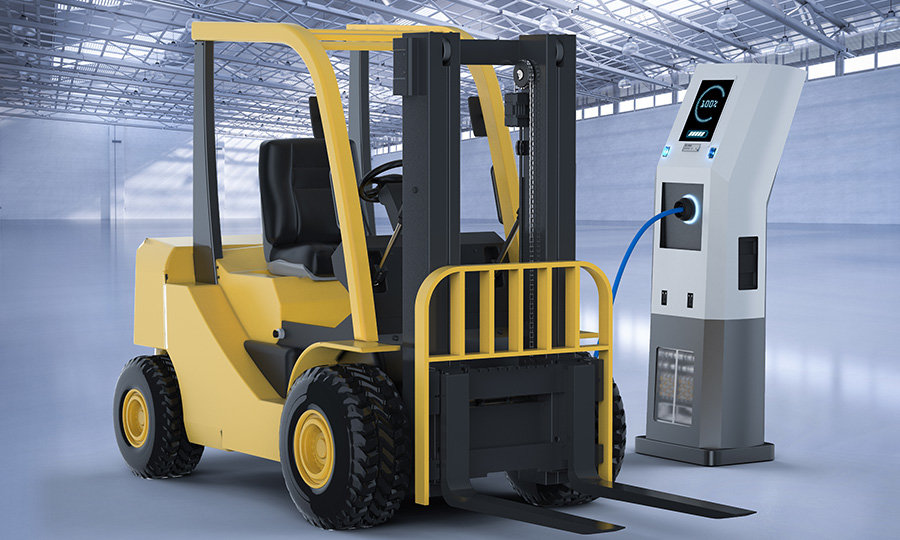Auxiliary power supply for fuel cell forklifts

Target Industry
- 【Manufacturing】Forklift / Construction machinery
- 【Transportation】Logistics / Warehousing
Background and Challenges
In the basic strategy for the realization of a hydrogen-based society, the government has set a goal of spreading 10,000 fuel cell forklifts in 2030.
Forklifts are indispensable transportation equipment for manufacturing industries and distribution warehouses, and are said to have a market size of about 1 million units per year in the world. There is a demand for about 10,000 units in Japan alone. In the future, it is expected that demand will increase more and more due to the development of e-commerce.
Conventionally, forklifts are mainly driven by engines such as gasoline, but engine noise and exhaust gas are major issues. It is often used indoors in a warehouse, and from the viewpoint of working environment, battery forklifts are increasing, especially in Europe and the United States. It is said that more than 15,000 fuel cell forklifts are already in operation in the United States.
The problem with the fuel cell is that it cannot utilize regenerative energy, has slow response to load fluctuations, and accelerates deterioration by load fluctuations, but these disadvantages can be supplemented by loading a high-output auxiliary battery.
Technical Advantages of Hybrid Super Capacitors (HSC)
Hybrid Super Capacitors have the characteristics of high rate current input / output characteristics, long life, and high safety, and can compensate for the weaknesses of fuel cells, which are high capacity but vulnerable to load fluctuations.
High Rate Current Input / Output Performance
- In applications such as forklifts where load fluctuations are severe such as sudden start, sudden stop, and lifting of heavy objects, the fuel cell + Hybrid Super Capacitor power supply system allows the fuel cell to operate for a long time and the Hybrid Super Capacitor to handle load fluctuations. Therefore, an ideal power supply system with less environmental load can be realized.
Long Life
- By suppressing fluctuations in the output of the fuel cell, deterioration of the fuel cell can be suppressed, and since the Hybrid Super Capacitor itself has a long life, the labor and replacement frequency of the power supply system can be significantly reduced.
High Safety
- Fuel cells that use hydrogen fuel cannot be ignited by any chance. Since the positive electrode of the Hybrid Super Capacitor is activated carbon, thermal runaway like the metal oxide used for LIB does not occur.
Energy Storage Device Comparison
| Hybrid Super Capacitor (HSC) | Lithium Ion Battery (LIB) | Electric Double Layer Capacitor (EDLC) | Lead-acid Battery | |
|---|---|---|---|---|
| Voltage | ◎ | ◯ | △ | △ |
| Energy density | ◯ | ◎ | △ | ◯ |
| Safety | ◯ | △ | ◯ | ◯ |
| Lifespan | ◎ | △ | ◯ | △ |
